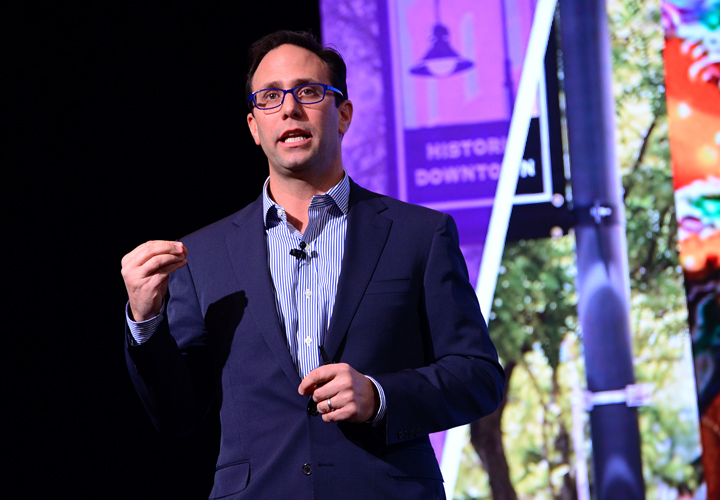SBDC Annual Meeting highlights area growth, changing business environment

More than 300 community and business leaders were on hand February 8 at the University Plaza Hotel & Convention Center for the Annual Meeting of the Springfield Business Development Corporation (SBDC), the Chamber’s economic development subsidiary. Attendees heard about several high points for the year, as well as information about how the world of communication is changing for businesses.
First off was the unveiling of a new video (scroll down to watch!) demonstrating why Springfield should be a destination for new and expanding businesses. The video is part of a recent rebranding effort for the Springfield region.
That was followed by a recap of 2016 successes by the Chamber’s Senior Vice President of Economic Development, Ryan Mooney, and 2016 SBDC Board Chairman Joe Reynolds. The two noted a number of high points for the year:
- Eight announced projects, which created 314 new jobs created with more than $14.4 million in payroll and more than $82 million in new capital investment
- More than 170 visits with area companies to discuss what they see as the strengths of the region and what would encourage them to grow their business
- Nearly 150 meetings with site consultants to showcase Springfield’s strengths to businesses looking to relocate
These highlights and numerous other stories were captured in the SBDC Annual Report, which was given to all attendees.
The event concluded with a keynote presentation by language and communication expert Michael Maslansky. He spoke about some of the topics covered in his book, The Language of Trust, particularly in the context of the current political environment.
The biggest change, according to Maslansky, is that trust – and with it, the benefit of the doubt – is disappearing. He pointed to the success of President Trump’s campaign as a reflection of four new realities in our country:
- Dislocation – People feel as if they’ve been left out of the system
- Tribalization – People bond with others who share their beliefs
- Confirmation – This tribalization leads to confirmation bias
- Polarization – Those not in your group seem out of touch, making discussion and compromise more difficult
He suggested that, whether or not you agree with Trump’s policies or ideas, his communication techniques can act as an example for successful organizations. He said Trump has the ability to communicate directly with people (mostly via Twitter), use simple and direct language and be clearly for and against certain ideas.
So what can companies take from those lessons? Maslansky thinks the key is to be direct and open. “We live in a world where companies are afraid to say what they mean for fear of offending others,” he told the group. “And if you don’t say what you mean, it’s impossible for people to trust you.”

